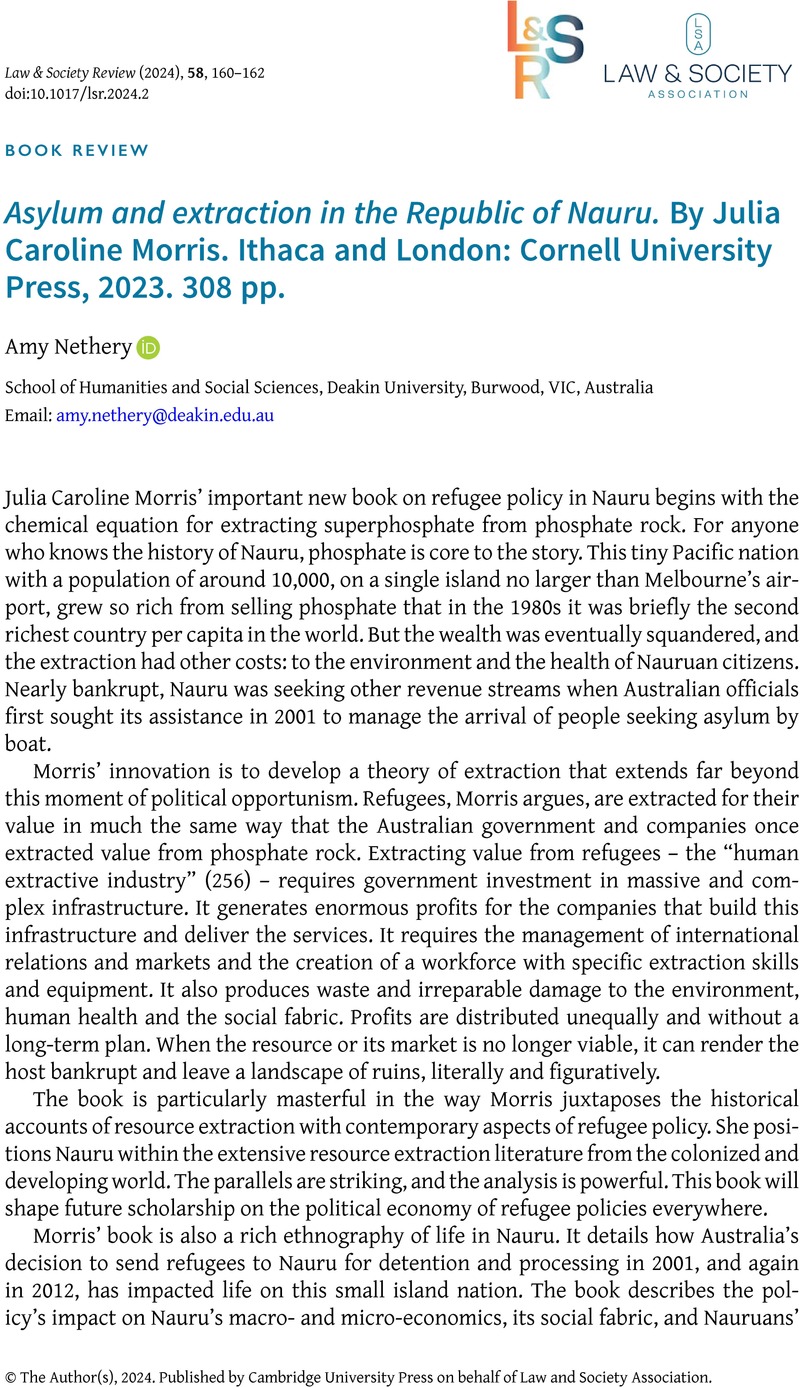No CrossRef data available.
Article contents
Asylum and extraction in the Republic of Nauru. By Julia Caroline Morris. Ithaca and London: Cornell University Press, 2023. 308 pp.
Review products
Asylum and extraction in the Republic of Nauru. By Julia Caroline Morris. Ithaca and London: Cornell University Press, 2023. 308 pp.
Published online by Cambridge University Press: 27 March 2024
Abstract
An abstract is not available for this content so a preview has been provided. Please use the Get access link above for information on how to access this content.

- Type
- Book Review
- Information
- Copyright
- © The Author(s), 2024. Published by Cambridge University Press on behalf of Law and Society Association.



